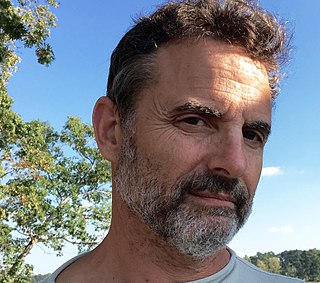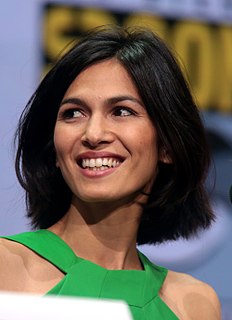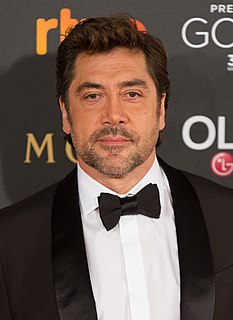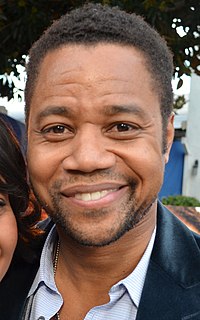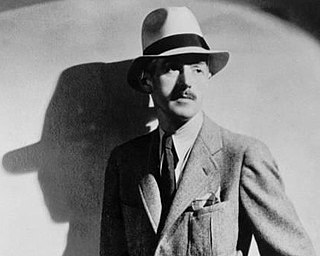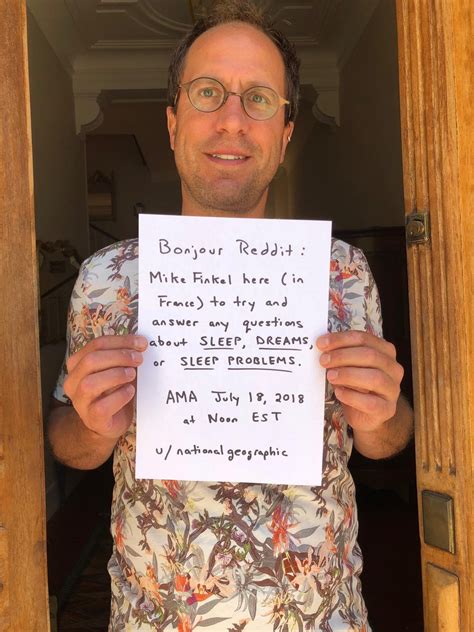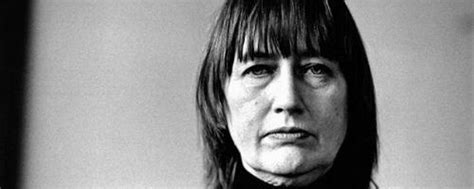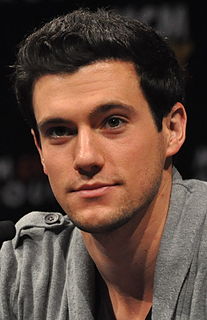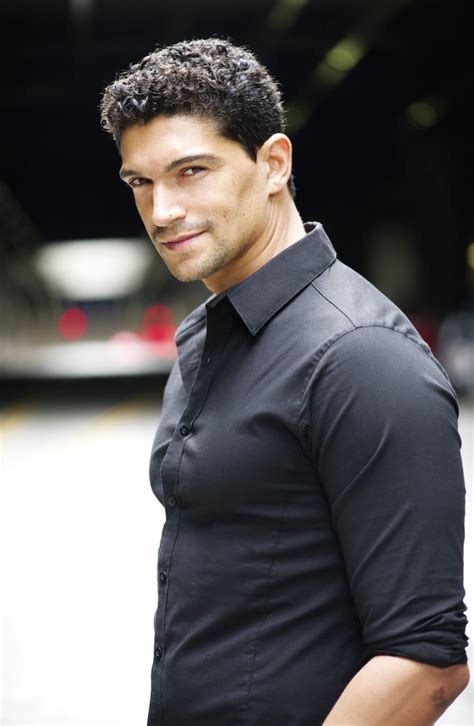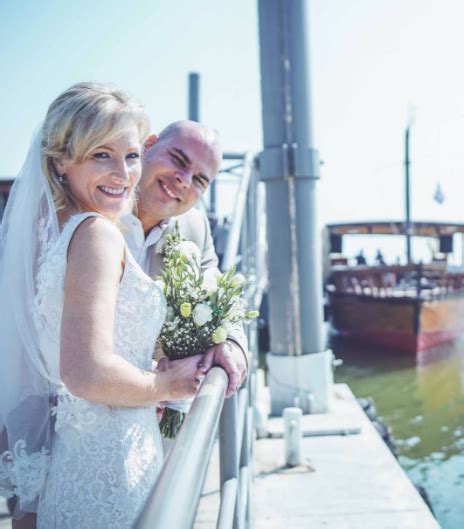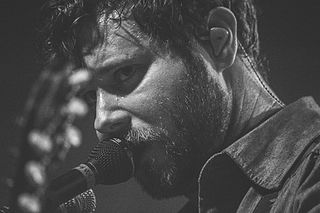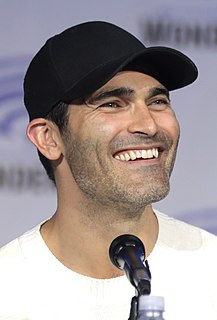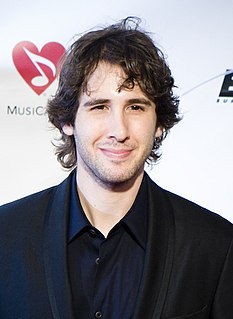Top 1200 Telling Your Story Quotes & Sayings - Page 4
Explore popular Telling Your Story quotes.
Last updated on April 21, 2025.
I wouldn't have thought that the techniques of story-telling, which is what the novel is after all, can vary much because there are two things involved.There's a story and there's a listener, whose attention you have to keep. Now the only way in which you can keep a reader's attention to a story is in his wanting to know what is going to happen next. This puts a fairly close restriction on the method you must use.
I think because it is a very well-saturated story,episode of Justified in Hannibal, and we've all heard it in some frame of a story, we've heard the urban legend of waking up in a bathtub with a kidney missing. It felt like if we are telling an organ-harvesting story, it was really about quickly selling the iconography of an organ-harvesting story, and then being able to mask that as a perfect way for Hannibal Lecter to go shopping for his menu.
When you are in the middle of a story it isn't a story at all, but only a confusion; a dark roaring, a blindness, a wreckage of shattered glass and splintered wood; like a house in a whirlwind, or else a boat crushed by the icebergs or swept over the rapids, and all aboard powerless to stop it. It's only afterwards that it becomes anything like a story at all. When you are telling it, to yourself or to someone else.
Ezra clapped his hands. "all right," he said. "In addition to the books we're reading as a class, I want to do an extra side project on unreliable narrators." Devon Arliss raised her hand. "what does that mean?" Ezra strode around the room. "well, the narrator tells us the story in the book, right? But what if... the narrator isn't telling us the truth? Maybe he's telling us his skewed version of the story to get you on his side. Or to scare you. Or maybe he's crazy!
Each of us chooses the tone for telling his or her own story. I would like to choose the durable clarity of a platinum print, but nothing in my destiny possesses the luminosity. I live among diffuse shadings, veiled mysteries, uncertainties; the tone of telling my life is closer to that of a portrait in sepia.
I don't think an actor needs to necessarily go through his things to do his job. I think it's way more important to imagine. And then, when you're imagining, your experiences, your images and your own personal things will show up, but you keep imagining. You don't get stuck in your own personal things, otherwise you are telling your story in every character, and that's not interesting for anybody.
Once you learn to discern the voice of Mother Culture humming in the background, telling her story over and over again to the people of your culture, you’ll never stop being conscious of it. Wherever you go for the rest of your life, you’ll be tempted to say to the people around you, “how can you listen to this stuff and not recognize it for what it is?
Why the connection with musicians? I think it's because in the end we're doing very similar things - we're telling stories, we're using poetic, lyrical language, and we're distilling stories down into their simplest form. We're both telling a story in two languages - word and music for them; and word and image for me.
Once you play with these scenes and you're outlining it, again and again, and telling each other the narrative, and telling it to people you know, trying to make sure that the mathematics of the story work, you feel that those are in place, and the actual writing and final draft doesn't take as long.
It looks like the writer is telling you a story. What the writer is actually doing, however, is using words to evoke a series of micromemories from your own experience that inmix, join, and connect in your mind in an order the writer controls, so that, in effect, you have a sustained memory of something that never happened to you.
After modernism, things changed. Indeed, modernism sometimes seems to me like an equivalent of the Fall. Remember, the first thing Adam and Eve did when they ate the fruit was to discover that they had no clothes on. They were embarrassed. Embarrassment was the first consequence of the Fall. And embarrassment was the first literary consequence of this modernist discovery of the surface. "Am I telling a story? Oh my God, this is terrible. I must stop telling a story and focus on the minute gradations of consciousness as they filter through somebody's.
My advice for telling someone else's story is to try not to consciously bend the story in any particular direction - to listen with an open mind, to include the good with the bad, to attempt to quell one's biases and allow the person you're writing about to emerge as wholly as possible, warts and all.
Loneliness is the inability to share your story, your Unique Self story. For most people, the move beyond loneliness requires us to share our story with a significant other. For the spiritual elite, the receiving of our own story - and the knowing that it is an integral part of the larger story of All-That-Is - is enough. But for most human beings, loneliness is transcended through contact with another person.
Film directing is really undermined if you attempt to do it by committee because there has to be a single vision as to how to tell a story. It's like if you were at a campfire, and everyone is taking turns to give one sentence in telling a horror story. It would be a mess - it's not going to make sense.
People need to understand that what happens in people's homes and behind closed doors, unless you were there, you really shouldn't make any analogy or any assumption, which writers do quite a bit. It's not something I ever for one second thought about. This is not my life story, and I've never told my life story, and I have no interest in telling my life story.
I never wanted to be an actor. My dad was an actor, and he never brought joy home, so I didn't view it as something that I would want to do. But I got fired as a secretary, and then I started studying, I started doing it just to earn money. And it took me a long time to learn to love it. And what I loved was telling a story. I tried to avoid making plays or films that weren't telling a story that I felt was important. I discovered in the process that it makes you more empathic because you have to enter someone else's reality and learn to see through many other people's eyes.
The story you envision as you start out is always a great story; when the facts turn out to be different from, or more complex than, what you expected, your first reaction is always disappointment. That's when you must fight the urge to bend the story to your preconceived notions. First, it's dishonest. And second, in the end, the truth is always the best story.
One describes a tale best by telling the tale. You see? The way one describes a story, to oneself or to the world, is by telling the story. It is a balancing act and it is a dream. The more accurate the map, the more it resembles the territory. The most accurate map possible would be the territory, and thus would be perfectly accurate and perfectly useless. The tale is the map that is the territory. You must remember this.
I knew I wanted to make a movie that looked decadent and expensive. I knew we would have to make every penny stretch and put as much of the budget onscreen as possible. So it starts with your heads of departments - your production designer, costume, hair and makeup designers. Picking the right people who were as committed as I was to telling the story as I was.



